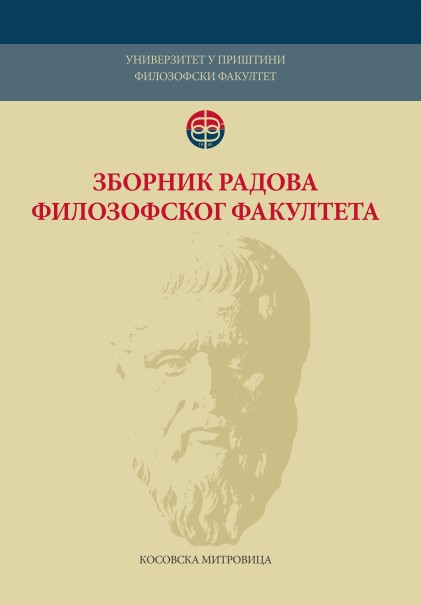Иса Бољетинац и младотурски режим
Isa Boljetinac and Young Turk Regime
Author(s): Vesna S. ZarkovićSubject(s): History, Ethnohistory, Recent History (1900 till today)
Published by: Филозофски факултет, Универзитет у Приштини
Keywords: Isa Boljetinac; Young Turks; Serbs; Albanians; The Ottoman Empire; Kosovo Vilayet
Summary/Abstract: At the beginning of the 20th century, The Ottoman Empire started weakening largely. This weakening was influenced by difficult economic situation accompanied by stronger diplomatic activities of the European powers. Wishing to save the state from the collapse, the Young Turk movement had forced the sultan Abdul Hamid to concession, which led to changes on the throne. The Young Turks reinforced their activity in all parts of the Ottoman Empire and many great plans lied ahead, which had foreseen reform of the state and society including internal consolidation of the country as well. The Young Turk regime representatives propagated the idea of equality of all people, which would have the same rights and duties as well.The ideas and work of the Young Turks came across a resistance of some Albanian leaders, among which was Isa Boljetinac, known as per his crimes over Serbian population of Mitrovica casa. He was known as an influential man and he enlarged his activity out of this territory, which often served, after numerous conflicts with Turkish authorities, as the hideout. As the prominent opponent of the Young Turk regime, the conflict with authorities and Albanian movements, which marked that time, was experienced as the struggle for old privileges such as: carrying of arms, non–paying of taxes, non–interference of Turkish authorities into their relationships and, especially, non–service in the army. Determination to persist in the struggle for the return of privileges led Isa Boljetinac to get in touch with the consul of the Kingdom of Serbia in Priština, from whom he requested arms, munitions, and money. Consul thought that the fulfilment of his requests had influenced the improvement of the position of Serbs and eventually some subsequent support so that he had approved of them. Nevertheless, before the outbreak of the Balkan Wars, Isa was not clear in his answers and it was evident it could not be counted on his alliance.
Journal: Зборник радова Филозофског факултета у Приштини
- Issue Year: 50/2020
- Issue No: 4
- Page Range: 161-184
- Page Count: 24
- Language: Serbian

